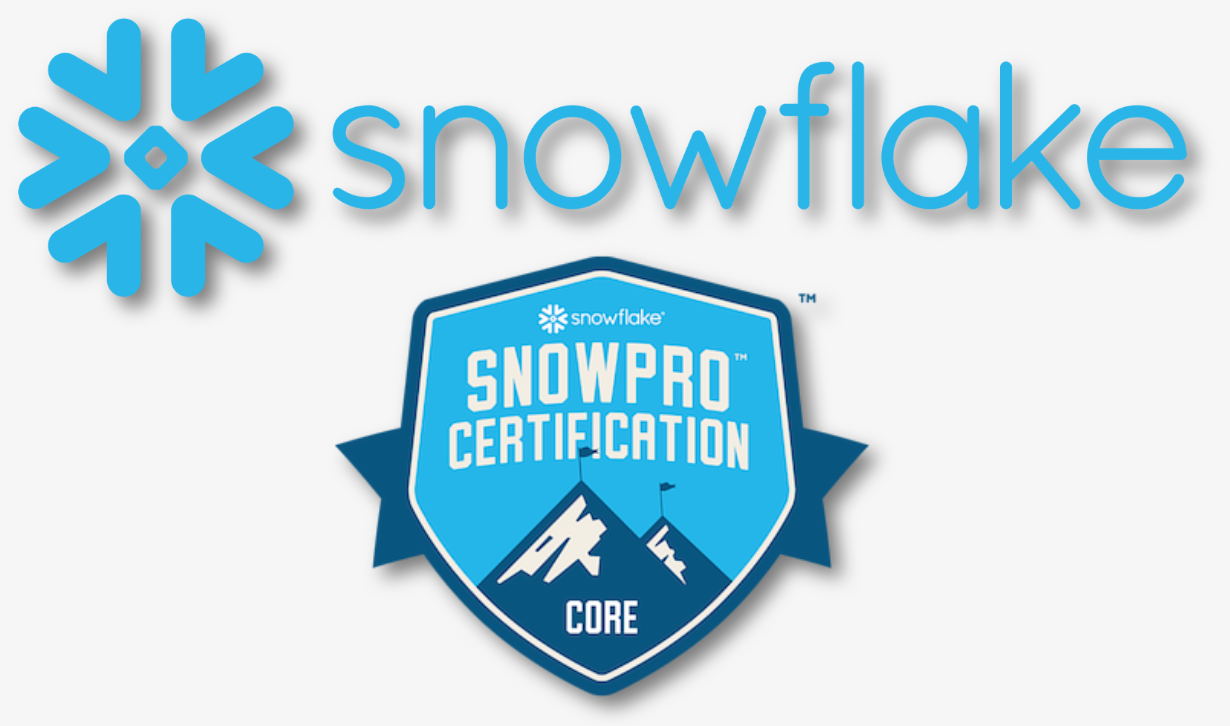In this blog, I will give you my own experience and my studying plan in order to pass the SnowPro Core Certification provided by Snowflake. Why obtaining a certification? How is structured? Which strategy use to smash it? How to deal with failures?

Why obtaining a certification?
If you are new in data-driven companies or you want to set an high standard for your professional expertise, obtaining a certification is one of the most efficient way to prove your skills and knowledge! Moreover, the certificate you obtained is a proof that you as a professional can share on social working platform and it can help in accelerating your career as well as get a leg up on the competitive market of data.
“A SnowPro Core Certified individual has a thorough understanding of
Snowflake’s Data Cloud, and has the knowledge necessary to develop, and manage secure, scalable Snowflake solutions to drive business objectives” that is what you can read in the SnowPro Core Exam Study Guide COF-C02. But now, let’s go dive and see:
- Exam Breakdown
- Topics and percentages
Exam Breakdown
- Number of questions: 100
- Multiple select, multiple choice (during the test, in the request there is the number of possible selection)
- Time: 115 mins
- Languages: English and Japanese
- Fee: $175 USD
- Most important thing: passing score 750 + Scaled Scoring from 0 – 1000
Topics and percentages
The certification reiterates that you are adequately familiar with the following topics:
- Data Loading and Transformation in Snowflake.
- Virtual Warehouse Performance and Concurrency
- DDL and DML Queries
- Using Semi-Structured and Unstructured Data
- Cloning and Time Travel
- Data Sharing
- Snowflake Account Structure and Management
In the test, these topics belong to specific domains and to a specific estimated percentage range, this corresponds to how many questions about certain topics you will find during the test. One strategy might be to focus on the topics with the highest percentages and then gradually move on to the others. However, I strongly advise you to study everything well. Not just for the certification, but to understand the tool you’ll need to use as a business analytics consultants.

Which strategy use to smash it?
One extremely useful tool is the exam study guide. Having this at hand will allow you to have all the topics just a click away. However, the only way to obtain this guide is to enroll in [COF-C02] SnowPro Core Certification (https://learn.snowflake.com/courses/course-v1:snowflake+SPSG-CORE+B/about).
In the guide for each domain you will find subcategories in which there are all topics. For example, in the Domain 1.0: Snowflake Data Cloud Features and Architecture Study Resources, the 1.4 subcategory is: Outline Snowflake storage concepts. And under this, all the topics to be studied are listed, as follows:

Winning strategy: old school studying
There is no one strategy that is better than others to pass the certification, but there are certainly some that are more successful than others. In my case studying the old-fashioned way allowed me to pass the test with a very good score. Since I took the test twice, I can assure you that critically and analytically understanding the various topics will allow you to pass the exam.
Following the exam guide is essential to have a specific understanding of all test topics. Reading the documentation, testing each topic in a practical way (therefore enrolling for a Snowflake trial account) but above all studying and thinking about the topics is the most effective strategy not only to pass the certification but to be a technical consultant prepared and updated on all features of Snowflake. If you want mock tests to do, read this article where a list of links is shared with readers.
There are a fair share of questions on the exam whose answers come from nowhere but from memory. For example, the time travel days for each edition of Snowflake, or the size of the files that can be loaded or downloaded from the stages (internal and external), the recommended load file size for the Snowpipes, and so on and so forth.
To remember these, the only way is to write down these numbers somewhere and repeat these numbers as a quiz. In fact, it’s also a fun way to test your knowledge among colleagues.

How to deal with failures?
As with any test, there is a chance to fail. Now, I won’t do a discussion here on the importance of being able to fail and the social value of failure (my past as a philosopher makes itself felt) but failure deserves a few lines from this blog.
It is not important to pass this certification only for the purpose of obtaining one more certification. Certification has real value only if the person taking it can answer questions, clarify doubts, but above all use their knowledge effectively. So if you fail the test, this failure should only encourage users to do better, to study more deeply, but not to demoralize them. Making mistakes can happen, indeed I would say that only in this way passing the certification acquires more value.
I highly recommend to readers the other blog posts about this certification: https://nimbusintelligence.com/blogposts/. In fact, each blog presents the personal experience of each of the Nimbus Intelligence Analytics Engineers, and this demonstrates, once again, that there is no the best strategy, but there is certainly a better one for each of us.







